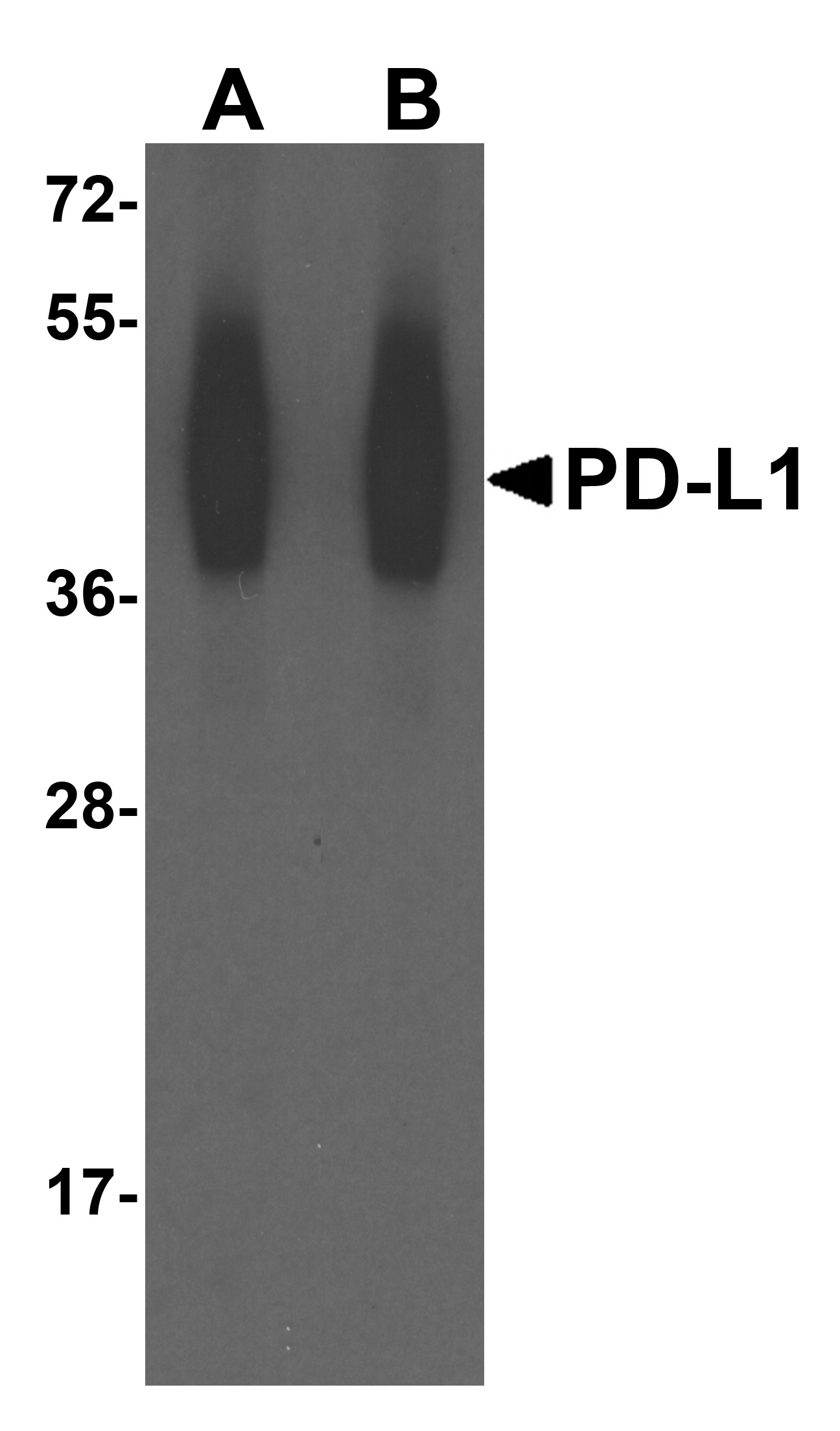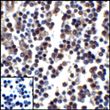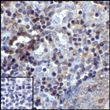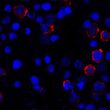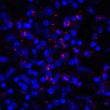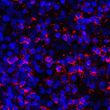PD L1 (CD274) Mouse Monoclonal Antibody [Clone ID: [8E12]]
CAT#: TA355067
Mouse Monoclonal Anti-PD-L1 Antibody [8E12]
Other products for "CD274"
Specifications
| Product Data | |
| Clone Name | [8E12] |
| Applications | FC, IF, IHC, WB |
| Recommended Dilution | WB: 0.25-0.5µg/mL.IHC starting at 2-5µg/mL. IF start at 5µg/mL. |
| Reactivities | Human |
| Host | Mouse |
| Isotype | IgG1 |
| Clonality | Monoclonal |
| Immunogen | PD-L1 antibody was raised against the extracellular domain of human PD-L1. |
| Formulation | PD-L1 Antibody is supplied in PBS containing 0.02% sodium azide. |
| Concentration | 1 mg/ml |
| Purification | PD-L1 Antibody is supplied as protein A purified IgG1. |
| Conjugation | Unconjugated |
| Storage | Store at -20°C as received. |
| Stability | Stable for 12 months from date of receipt. |
| Predicted Protein Size | Predicted: 32 kDa; Observed: 45 kDa |
| Gene Name | CD274 molecule |
| Database Link | |
| Background | PD-L1 Antibody: Cell-mediated immune responses are initiated by T lymphocytes that are themselves stimulated by cognate peptides bound to MHC molecules on antigen-presenting cells (APC) (1). T-cell activation is generally self-limited as activated T cells express receptors such as PD-1 (also known as PDCD-1) that mediate inhibitory signals from the APC (2). PD-1 can bind two different but related ligands, PD-L1 and PD-L2. PD-L1 is a B7-related protein that inhibits cell-mediated immune responses by reducing the secretion of IL-2 and IL-10 from memory T cells (3). This suggests that PD-L1 may be useful in reducing allogenic CD4+ memory T-cell responses to endothelial cells, thereby reducing the likelihood of host immune responses to allografts. PD-L1 also functions as an immune checkpoint protein, and multiple anti-PD-L1 antibodies are currently in phase II and III clinical trials, with one antibody already approved for the treatment of cancer (4). |
| Synonyms | B7-H; B7-H1; B7H1; MGC142294; MGC142296; PD-L1; PDCD1L1; PDCD1LG1; PDL1 |
| Note | PD-L1 antibody can be used for detection of PD-L1 by Western blot at 0.25 - 0.5 µg/mL. Antibody can also be used for immunohistochemistry starting at 2 - 5 µg/mL. For immunofluorescence start at 5 µg/mL. |
| Reference Data | |
| Protein Families | Druggable Genome, Transmembrane |
| Protein Pathways | Cell adhesion molecules (CAMs) |
Documents
| Product Manuals |
| FAQs |
{0} Product Review(s)
0 Product Review(s)
Submit review
Be the first one to submit a review
Product Citations
*Delivery time may vary from web posted schedule. Occasional delays may occur due to unforeseen
complexities in the preparation of your product. International customers may expect an additional 1-2 weeks
in shipping.






























































































































































































































































 Germany
Germany
 Japan
Japan
 United Kingdom
United Kingdom
 China
China
